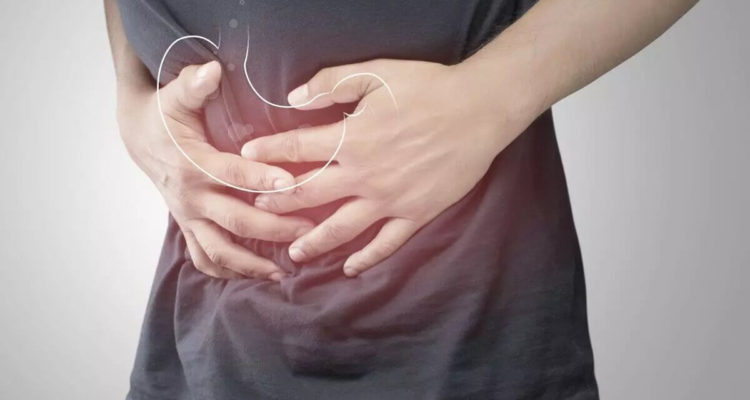
Why does the stomach growl and when it can be dangerous
0
Painful spasms are a sure sign that you need to see a doctor.
Where does the rumbling in the stomach come from
The stomach and intestines are hollow organs, the walls of which consist of smooth muscles Thanks to the latter, the body digests food efficiently.
When the intestinal muscles contract, there is a rumbling in the stomach.
Remember how you knead the dough to give it a uniform structure. Approximately the same process occurs in the gastrointestinal tract. The muscles contract, compress the contents of the stomach and intestines, grind and mix them, delay them in one place and make them move faster to the anus in another. This process is called peristalsis.
In addition, various liquids and gases are released during digestion. And sometimes a small muscle contraction is enough to make this cocktail make a bubbling sound. Sometimes such sounds are called borborygmas.
Here are the most common cases of grunting.
1. You just ate
If you are healthy and full, your stomach is grumbling. Absolutely correct.
Since food, fluid, and gas are most often present in the intestines right after a meal, rumbling is especially inevitable at this time.
JW Marks
MD, Gastroenterologist.
True, the food distributed along the walls of the intestine serves as a kind of sound-insulating gasket. Therefore, borborygmas are not very audible from the outside. Although there are exceptions.
2. You drank a lot of liquid on an empty stomach
Its movement through the gastrointestinal tract can be accompanied by characteristic gurgling. Especially if the drink was carbonated, that is, it increased the amount of gases in the intestines.
3. You are hungry
This is another common cause of rumbling.
Although the rate and force of peristalsis usually increase in the presence of food, the activity of the walls of the stomach and intestines also increases in the presence of food. if you haven't had a snack in two hours.
Mark AV Andrews
Associate Professor of Physiology, in a comment.
Since there is no food in the intestines to muffle the sounds, the rumbling sounds especially loud in such cases. Sometimes subsiding, then intensifying, it continues for an average of 10–20 minutes. And then it will repeat every hour or two until you finally eat.
4. You have problems with the microbiome
That is, with the bacteria that inhabit the intestines. Sometimes it happens that the number of microbes increases dramatically, and all of them together produce an abnormally large amount of gas.
A large volume of gases and more active contractions of the intestinal muscles, caused by gas pressure from its wall, lead to regular loud rumbling in the stomach.
JW Marks
Medical doctor, gastroenterologist.< /blockquote>
This condition is called small intestinal bacterial overgrowth. Among its possible causes are diabetes, celiac disease, Crohn's disease and other conditions and diseases that can slow down the movement of food through the gastrointestinal tract.
5. You ate something that caused gas in your intestines
The more gas, the higher the risk of rumbling. Here are some foods that can cause this:
- Legumes: beans, peas, lentils.
- High-fiber vegetables and fruits: cabbage (white cabbage, Brussels sprouts, Beijing , colored), carrots, apples, apricots, prunes.
- Food supplements based on fiber.
- Food with artificial sweeteners. Look for aspartame, xylitol, sorbitol.
In addition, there are products that affect the gas content in the intestines indirectly. These are, for example, chewing gum and lollipops: when you chew and dissolve them, you swallow excess air. The same effect is given by cocktails, lemonades, juices that you drink through a straw.
6. You have an overactive intestine
This means that its walls contract very quickly and strongly. Food, liquids and gases move through the hyperactive gastrointestinal tract in jerks, and this movement is often accompanied by sharp and loud rumbling.
Such increased intestinal activity occurs, for example, with diarrhea. But it may not have any obvious reasons.
7. You may have polyps or a tumor. It can be a polyp (cellular growth on the wall of the intestine), adhesion-scar, diverticula, tumor.
In order to push food through the narrowed intestinal cavity, smooth muscles begin to contract more strongly. And this leads to a loud hum. Borborygmas caused by this cause are accompanied by a painful spasm in the abdomen.
If the obstruction is not removed, the muscles of the gastrointestinal tract will eventually tire and stop working. The cramping and rumbling will go away, but food, gas, and fluid will continue to build up in the intestines until they become obstructed. This is how a deadly intestinal obstruction occurs.
8. Or maybe this is your individual feature
One interesting case is described in the British scientific journal The BMJ.
A 48-year-old woman complained for a long time about a strong grumbling in her stomach, which literally destroyed her personal and social life. Borborygmas worsened after eating and almost stopped when the patient stood. And only if the woman held her breath or pressed her left hypochondrium with her hand, the grumbling subsided. Also, the intestines did not make sounds in the lying position.
Trying to determine the cause of obsessive grumbling, doctors conducted many examinations. Gastroscopy, colonoscopy, CT scan of the abdominal cavity, laparoscopy, biopsy of various parts of the intestine, examination of the transit of the small intestine — everything showed that the patient is absolutely healthy, and her gastrointestinal tract has no deviations from the norm. It was possible to find out what was happening only after the woman was offered food with barium. Then, with the help of an X-ray with contrast, the doctors traced how the eaten food moved through the intestine.
One of the lower ribs on the left turned out to be to blame for everything. It deviated a little and squeezed the gastrointestinal tract, causing increased activity of the intestinal muscles. When the woman pressed her hand to the left hypochondrium. changing the position of this bone, or holding her breath (that is, slightly changing the position of the diaphragm), the pressure on the intestines decreased and the sounds disappeared.
How that story ended is not entirely clear. It is known that doctors offered the patient to wear a corset, which would ensure the “silent” position of the ribs, but this did not help. This is where the presentation of the medical case ends.
But one simple conclusion can be drawn from it. Sometimes obsessive grumbling in the stomach is not at all a sign of hunger or medical problems, but simply an individual feature.
When you need to see a doctor urgently
Most often, borborygmas are harmless. and cause only psychological suffering. But there are symptoms in which it is necessary to complain about the grumbling of a therapist or a gastroenterologist. Here they are:
- You notice streaks of blood in the stool.
- Grunting is accompanied by painful spasms in the abdomen.
- In addition to borborygmas, nausea and vomiting are present.
- li>
- The stomach is actively grumbling for several hours in a row, and all this time you continue to have constipation or diarrhea.
It is also worth talking to a doctor if annoying sounds come from the intestines day after day. In this case, it is necessary to exclude possible diseases of the gastrointestinal tract and metabolism.
What to do so that the stomach does not grumble
If there are no dangerous signs, and grunts only occasionally, try to get rid of borborygmas at home.
- Exclude foods that cause increased gas production.
- Try to eat slowly, give up chewing gum and carbonated drinks to do not swallow excess gases.
- Eat 5-6 times a day in small portions.
- Take a teaspoon of olive, sunflower and linseed oil a day. American gastroenterologist Jay W. Marks explains: fatty acids released during the digestion of oil in the intestines can reduce the activity and strength of muscle contractions. Which means to make the sounds of the working gastrointestinal tract less pronounced.









Leave a Reply